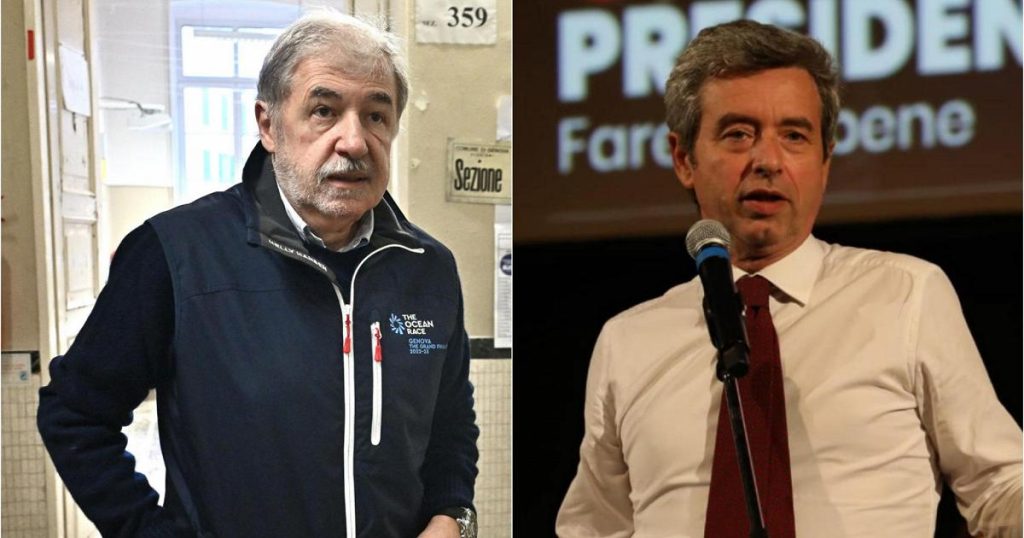The center-right wins in Liguria with Marco Bucci as the new regional president, despite receiving a blow from his own city where he is still the mayor. Andrea Orlando is defeated and expresses regret as the coalition’s internal divisions and veto power of the Five Star Movement weigh heavily on the defeat. The election results offer insights with national relevance, highlighting three key themes and lessons. The first lesson is the defeat of the Five Star Movement, led by Beppe Grillo, who did not even bother to vote, resulting in a loss of over 3% compared to the previous election, and a decrease of 20% since 2015. The coalition led by the Democratic Party, with Orlando as the candidate, performs better than in 2015, while the Green Left confirms its positive momentum.
The second lesson from the election is the success of the united center-right coalition in overcoming challenges, including scandals involving the outgoing president Giovanni Toti and parts of the Ligurian business community. The accusations of corruption and mafia involvement did not prevent the center-right from winning, attributed to Marco Bucci’s focus on promoting finance for public infrastructure projects, despite opposition from the progressive front. Although Fratelli d’Italia loses support, the broader “Toti-Bucci” wave within the center-right prevails, securing victory even in the face of substantial defeats in major cities like Genoa, La Spezia, and Savona. The upcoming Genoa elections will be another test for the coalition.
The third lesson highlighted by the election results is the issue of voter turnout, with only 45.97% of Ligurians participating, a decrease of 7.5% from the previous regional election. Despite the low voter turnout, the winning party will govern with just over 22% of eligible voters’ support, while the opposition will have slightly over 20%. The problem of voter apathy and abstention poses a significant challenge to Italian democracy, compounded by the diminishing impact of judicial investigations on mobilizing voters. Unlike the era of Tangentopoli, where corruption scandals fueled a desire for change, today’s investigations create disillusionment with politics and push citizens further away from the voting process.
Looking ahead, the regional election results in Liguria offer valuable insights for national politics, emphasizing the importance of coalition unity, public infrastructure projects, and addressing voter apathy. The defeat of the progressive front due to internal conflicts within the Five Star Movement underscores the need for cohesive and coordinated strategies among political allies. The success of the center-right coalition in overcoming scandals and securing victory highlights the significance of proactive governance and strategic planning. Voter turnout and engagement remain critical challenges for Italian democracy, requiring innovative approaches to re-engage citizens with the political process and restore trust in institutions. As Liguria prepares for a new chapter under Marco Bucci’s leadership, the election outcome serves as a bellwether for broader political trends and challenges facing the country.


